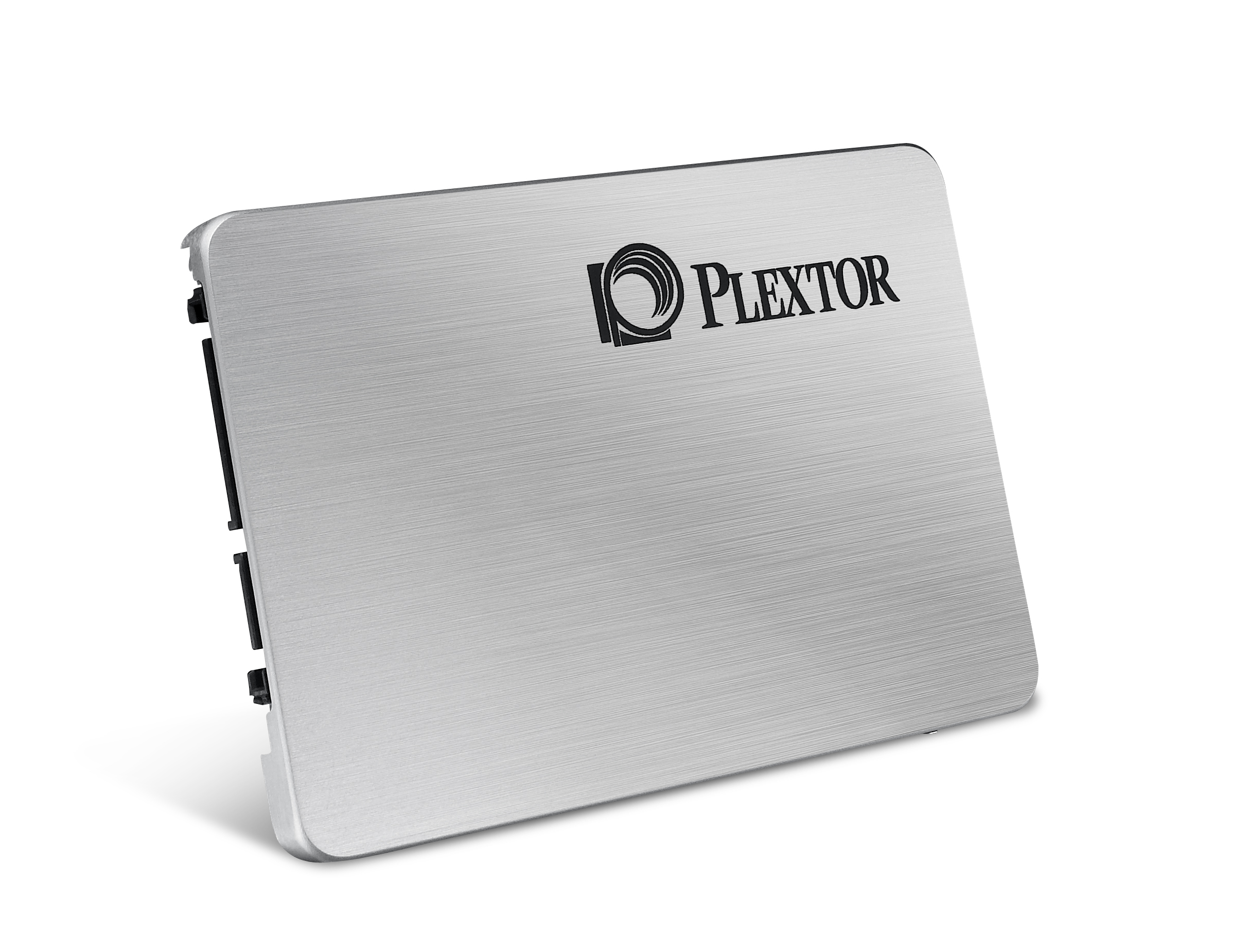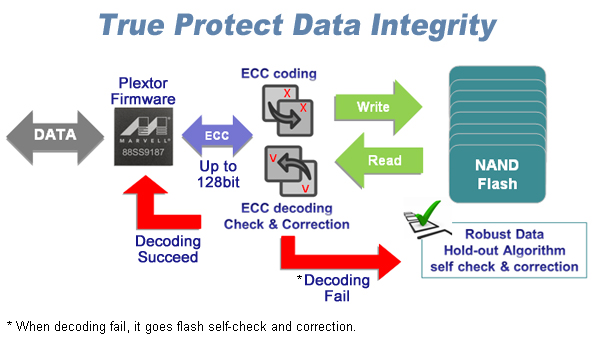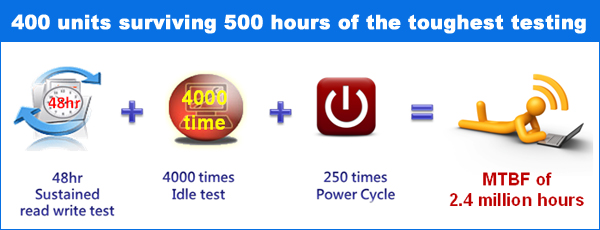Plextor M5 Pro 256 GB Review: 19 nm NAND And Marvell's Latest
Hot on the heels of its M5S, Plextor sent us the M5 Pro. Loaded with hot new technologies like 19 nm NAND and the latest Marvell controller, the company's flagship was certainly worth waiting for. How does it do against the established incumbents, though?
Plextor M5 Pro: A Performance-Oriented SSD
Just as we finished our Plextor M5S 256 GB Review, the company's 256 GB M5 Pro (PX-256M5P) showed up at our door. We couldn't get the highly-anticipated drive out of its box and onto our test bench fast enough, particularly since we had just seen the M5S do so well, and despite its position as Plextor's value-oriented model. Needless to say, we started testing with high expectations.
The M5 Pro is a more performance-oriented product, and the hardware inside its chassis indicates that we should expect the M5 Pro to surpass our expectations of previous Plextor drives. For instance, the M5S we reviewed previously uses 25 nm synchronous NAND from Micron and Marvell's 88SS9174-BLD2 controller, while the M5 Pro employs 19 nm Toggle-mode DDR from Toshiba and a more modern Marvell 88SS9187-BLD2 processor.
To see Toshiba's 19 nm MLC flash in a retail product this early is remarkable. Mass production only started in July at the Yokkaichi plant in Japan. Of course, the question is whether an even smaller node negatively impacts the write endurance of Plextor's latest and greatest, and we'll get into that in more detail.
The M5 Pro also comes with Plextor's customized firmware, which, as we saw in our M5S coverage, is both tweaked and tuned to augment performance in metrics that matter.
Beyond its performance advantage over the M5S, the M5 Pro also adds full drive encryption via AES-256 and the latest 128-bit error correction codes. A five-year warranty and accessory package round out the kit, reassuring customers of Plextor's confidence in its handiwork, similar to what we've seen from companies like Intel.
Plextor makes the following claim about its M5 Pro:
"The M5 Pro has a unique double-data protection system to protect the integrity and confidentiality of your data. To confirm that each piece of data is correctly stored with one hundred percent accuracy, the newest 128-bit error correction code is used; this is backed by a unique Robust Data Hold-out Algorithm in Plextor’s exclusive firmware. This algorithm ensures that even in the very long-term, data can be read with extremely high accuracy. For data confidentiality the M5 Pro supports full drive encryption with an Advanced Encryption Standard (AES) 256-bit algorithm using its US Government AES-validated Marvell controller. Using the latest 128-bit error correction system built into the latest Marvell controller the M5 Pro is able to automatically check and correct the accuracy of data being read from the flash memory.
Get Tom's Hardware's best news and in-depth reviews, straight to your inbox.
The drive was extensively tested during development using the world’s most advanced SSD testing facilities to guarantee a high level of stability. The final design was able to pass Plextor’s strict enterprise-grade Zero Error standard of 400 units surviving 500 hours of the toughest continuous testing without a single error or failure. Before leaving the factory, every individual M5 Pro SSD is required to pass a rigorous high temperature burn-in test and accelerated operating simulation."
Clearly, the company is aiming for reliability as a primary selling point. Plextor also claims a MTBF forecast of 2.4 million hours.
Plextor is selling the M5 Pro in three different capacities: 128, 256, and 512 GB. For reference, the performance figures in brackets, below, are for Plextor's M3P series.
| Header Cell - Column 0 | PX-128M5P | PX-256M5P | PX-512M5P |
|---|---|---|---|
| Processor | Marvell 88SS9187-BLD2 | ||
| DDR RAM Buffer Size | 256 (256 x 1) | 512 (256 x 2) | 768 (1 x 512 and 1 x 256) |
| NAND | Toshiba 19 nm MLC Toggle-mode NAND | ||
| Formatted Capacity | Row 3 - Cell 1 | 238 GiB | Row 3 - Cell 3 |
| Interface | SATA 6Gb/s | ||
| Form Factor | 2.5", 7 mm | 2.5", 7 mm | 2.5", 7 mm |
| Command Set Support | TRIM, S.M.A.R.T., NCQ, ATA/ATAPI-8 | ||
| Data Encryption | AES | ||
| Warranty | Five Years | ||
| Sequential Read (MB/s) | 540 [535] | 540 [540] | 540 [535] |
| Sequential Write (MB/s) | 340 [350] | 450 [420] | 450 [450] |
| 4 KB Random Read (IOPS) | 91 000 [75 000] | 94 000 [75 000] | 94 000 [56 000] |
| 4 KB Random Write (IOPS) | 82 000 [69 000] | 86 000 [68 000] | 86 000 [34 000] |
There is a "Ninja" limited edition, souped-up version of the M5 Pro that comes in a red casing with engraved shuriken graphics, but we are sad to say it won’t be sold in the U.S. It's as rare as hen's teeth in any other market, so we can only provide you with a mouth-watering image of what it looks like.
Current page: Plextor M5 Pro: A Performance-Oriented SSD
Next Page Inside Plextor's 256 GB M5 Pro-
You have the wrong Marvell controller listed for the crucial M4 and the Plextor M5S. This controller is new.Reply
The old one was the 88SS9174-BKK2.
http://www.tomshardware.com/reviews/plextor-m3-crucial-m4-octane-performance-pro,3178.html -
mayankleoboy1 can we have a benchmark of the time it takes to install a fresh copy of Win7+SP1 on a SSD ? Because thats the first thing a user will do after buying a new drive.Reply -
echondo mayankleoboy1can we have a benchmark of the time it takes to install a fresh copy of Win7+SP1 on a SSD ? Because thats the first thing a user will do after buying a new drive.Reply
I believe we can all assume it will take around 10-15 minutes. My old SATA2 Vertex drive can have Windows installed with all the Windows updates I want in around 20 minutes, it would be less time but I have to install all my drivers first for my motherboard :p -
SpadeM grantwarI'd love to see how this drive fares against the samsung 840 Pro.Reply
Here you go:
http://www.anandtech.com/bench/Product/665?vs=646 -
JeanLuc I was on Youtube the other day on the Corsair channel and they were showing the advantages of 'Ram cache' which was lights years faster then SSD's in therms of throughput. Could Toms consider doing an article into Ram cache as I think it would be of interest to people who have 16-32Gb systems (since DDR3 is cheap at the moment) can spare the extra system ram to cache files and software.Reply -
merikafyeah SpadeMHere you go: http://www.anandtech.com/bench/Product/665?vs=646Wow. The 840 Pro beat the M5 Pro in virtually everything according to that data. The 840 Pro does cost significantly more though.Reply -
merikafyeah JeanLucI was on Youtube the other day on the Corsair channel and they were showing the advantages of 'Ram cache' which was lights years faster then SSD's in therms of throughput. Could Toms consider doing an article into Ram cache as I think it would be of interest to people who have 16-32Gb systems (since DDR3 is cheap at the moment) can spare the extra system ram to cache files and software.TheSSDReview did something similar:Reply
http://thessdreview.com/our-reviews/romex-fancycache-review-ssd-performance-at-13gbs-and-765000-iops-in-60-seconds-flat/
No point in even comparing RAM to SSDs, as even "slow" RAM is faster than even the best SSDs by about the same amount as the best SSDs are faster than floppy disks. -
aicom This review would have been impressive if it was published 2 weeks ago. With the 840 Pro out, it simply blows the M5P out of the water. Too bad it wasn't included in the benchmark charts here.Reply



